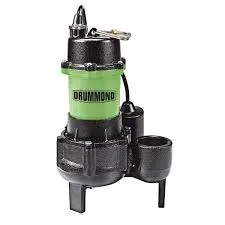English
- Afrikaans
- Albanian
- Amharic
- Arabic
- Armenian
- Azerbaijani
- Basque
- Belarusian
- Bengali
- Bosnian
- Bulgarian
- Catalan
- Cebuano
- Corsican
- Croatian
- Czech
- Danish
- Dutch
- English
- Esperanto
- Estonian
- Finnish
- French
- Frisian
- Galician
- Georgian
- German
- Greek
- Gujarati
- Haitian Creole
- hausa
- hawaiian
- Hebrew
- Hindi
- Miao
- Hungarian
- Icelandic
- igbo
- Indonesian
- irish
- Italian
- Japanese
- Javanese
- Kannada
- kazakh
- Khmer
- Rwandese
- Korean
- Kurdish
- Kyrgyz
- Lao
- Latin
- Latvian
- Lithuanian
- Luxembourgish
- Macedonian
- Malgashi
- Malay
- Malayalam
- Maltese
- Maori
- Marathi
- Mongolian
- Myanmar
- Nepali
- Norwegian
- Norwegian
- Occitan
- Pashto
- Persian
- Polish
- Portuguese
- Punjabi
- Romanian
- Russian
- Samoan
- Scottish Gaelic
- Serbian
- Sesotho
- Shona
- Sindhi
- Sinhala
- Slovak
- Slovenian
- Somali
- Spanish
- Sundanese
- Swahili
- Swedish
- Tagalog
- Tajik
- Tamil
- Tatar
- Telugu
- Thai
- Turkish
- Turkmen
- Ukrainian
- Urdu
- Uighur
- Uzbek
- Vietnamese
- Welsh
- Bantu
- Yiddish
- Yoruba
- Zulu
Telephone: +86 13120555503
Email: frank@cypump.com
Sep . 07, 2024 16:46 Back to list
Professional Pump Septic Services | Reliable Septic Tank Solutions
Understanding Pumped Septic Systems
Septic systems are a common method of wastewater treatment in areas where conventional sewage systems are not available. At the heart of many septic systems is a component known as a pump septic system. This type of system offers several advantages in terms of efficiency and effectiveness in managing household waste.
A traditional septic system typically consists of a septic tank and a drain field. Wastewater flows from the household into the septic tank, where solid waste settles to the bottom while lighter substances like grease float to the top. The treated effluent then exits the tank and percolates through the drain field into the soil, where natural filtration processes take over. However, in regions with high water tables, rocky terrain, or where the land slopes away from the drain field, gravity-fed systems may not be practical. This is where pumped septic systems come into play.
Pumped septic systems utilize a mechanical pump to move wastewater through the system. The pump is activated when the wastewater reaches a certain level in the septic tank. This mechanism ensures that the effluent is directed to the drain field or to a designated treatment area, even if the terrain is not conducive to gravity drainage. By employing a pump, these systems can effectively manage wastewater in challenging environments, ensuring that households remain compliant with health regulations while protecting the surrounding ecosystem.
pump septic

The pump septic system is not only useful in preventing sewage backups but also contributes to the longevity and efficiency of the septic system itself. Regular maintenance of the pump and the entire septic system is essential. Homeowners should schedule routine inspections to ensure that the pump operates correctly and that the tank is pumped out as needed, typically every 3 to 5 years. Neglecting maintenance can lead to pump failure or septic system overload, which may result in costly repairs or environmental hazards.
Additionally, the installation of a pumped septic system may be more expensive than traditional systems due to the added components and the complexity of the setup. However, the investment can prove worthwhile in areas where gravity systems are impractical. Furthermore, advancements in technology mean that modern pumps are more energy-efficient and less prone to failure than those of the past.
Education around the use of pumped septic systems is also vital. Homeowners must understand how to use the system properly and the importance of not flushing non-biodegradable items down the toilet, as these can clog the system and lead to malfunctions. Making informed decisions about household wastewater can greatly reduce the environmental impact and enhance system performance.
In conclusion, pumped septic systems serve a crucial role in wastewater management, particularly in areas where traditional systems are not feasible. They provide a reliable solution for moving wastewater efficiently while maintaining environmental integrity. Through proper installation, regular maintenance, and responsible usage, homeowners can ensure that their pumped septic systems operate effectively, safeguarding their health and the environment for years to come. Whether you're considering installing a new septic system or managing an existing one, understanding the basics of pumped septic systems is essential for any homeowner.
-
ISG Series Vertical Pipeline Pump - Chi Yuan Pumps Co., LTD.
NewsJul.30,2025
-
ISG Series Vertical Pipeline Pump - Chi Yuan Pumps Co., LTD.|energy-efficient fluid handling&industrial durability
NewsJul.30,2025
-
ISG Series Vertical Pipeline Pump - Chi Yuan Pumps | Advanced Engineering&Industrial Efficiency
NewsJul.30,2025
-
ISG Series Pipeline Pump - Chi Yuan Pumps | High Efficiency, Energy Saving
NewsJul.30,2025
-
ISG Series Vertical Pipeline Pump-Chi Yuan Pumps|High Efficiency&Reliable Performance
NewsJul.29,2025
-
ISG Series Vertical Pipeline Pump|High Efficiency&Low Noise
NewsJul.29,2025










